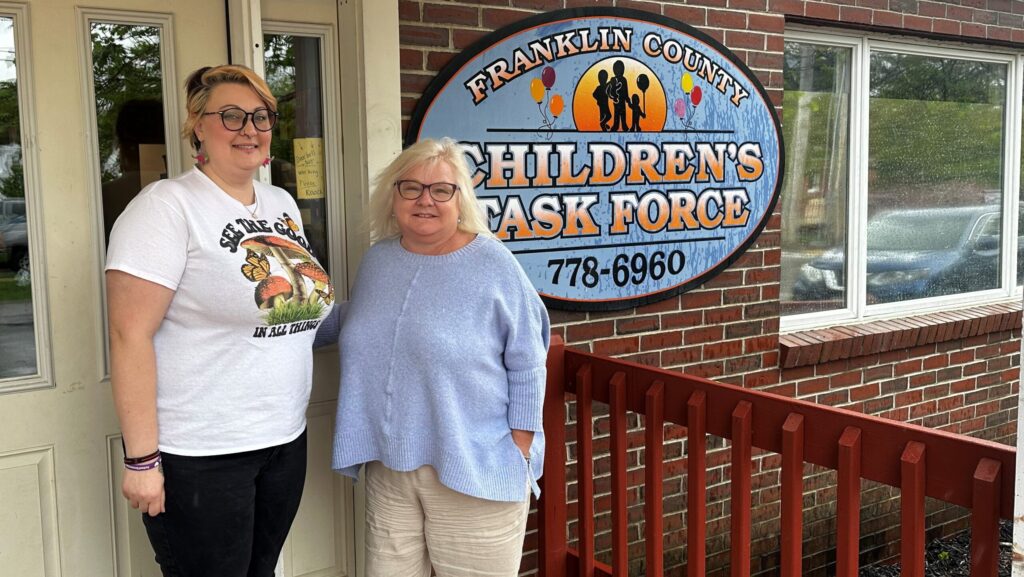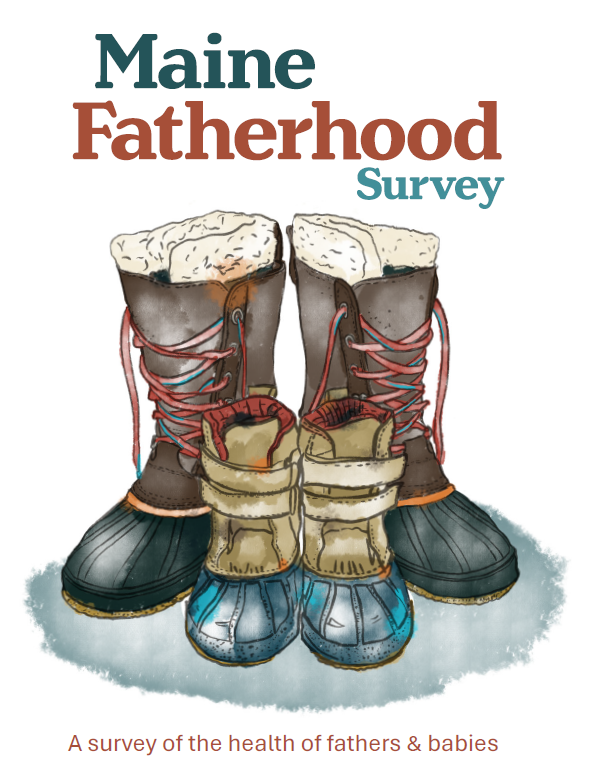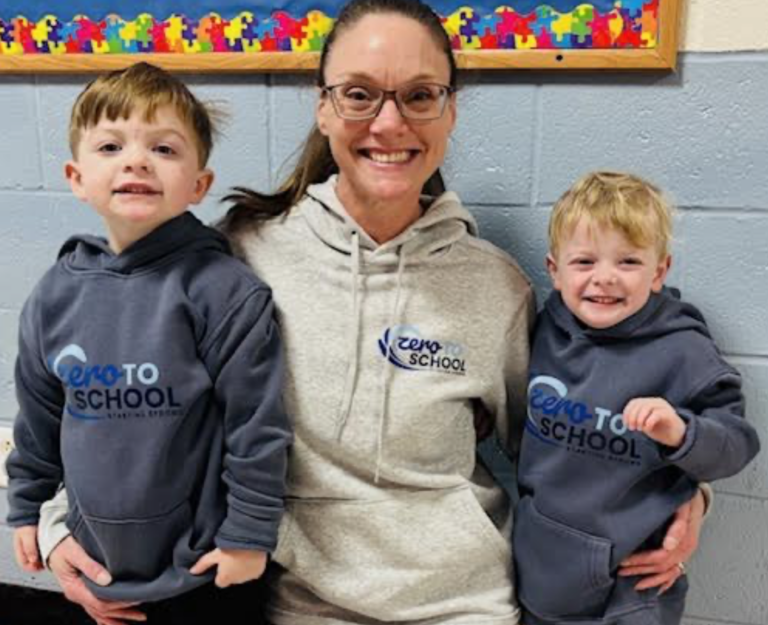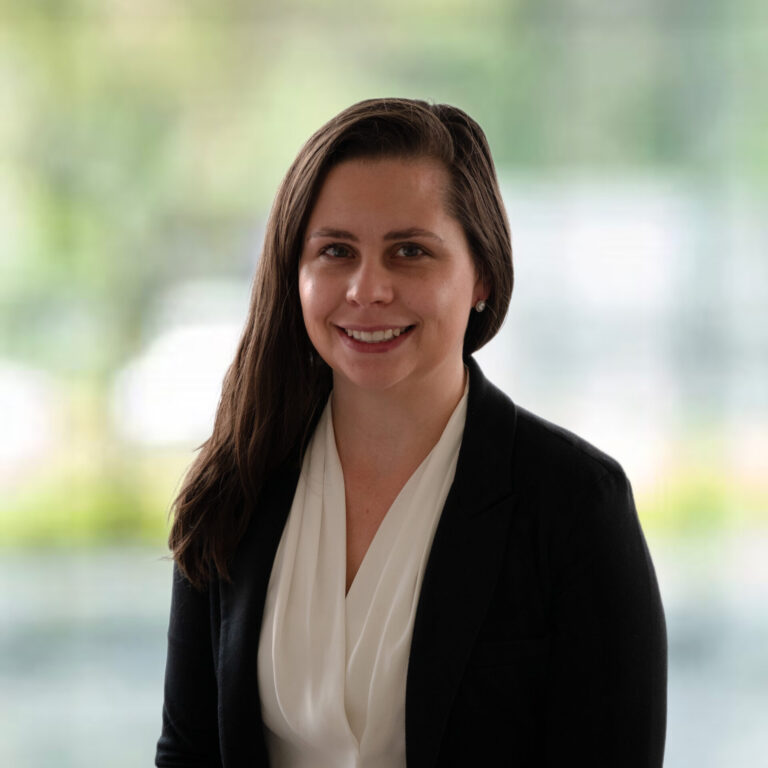Rising Futures Maine initiative focuses on building partnerships to remove barriers and expand opportunity for parents pursuing education and workforce opportunities

Like many other parenting students, Angela Samperi demonstrates resilience, perseverance, and grit as she works toward her bachelor’s degree in Human Services. She takes one course at a time while working three jobs and raising two children, ages 9 and 10. When asked what earning the degree would mean to her family, the Franklin County mom doesn’t hesitate.
“It’s so many things – more opportunities job wise, a sense of purpose and value,” she says, starting to tear up. “It’s really important to show my kids that you can do whatever you put your mind to.”
With support from the John T. Gorman Foundation, a new effort is underway to better meet the needs of parenting students like Samperi so they can reach their goals.
Improving Supports for Parenting Students
For parents striving to create a brighter future, the opportunity to advance their education can be transformative. A postsecondary degree or credential can lead to higher-paying careers for parents and improved outcomes for their children. But the path can be daunting – requiring them to juggle work, parenting, and school among other challenges.
National figures speak to the obstacles. About 1 in 5 undergraduates have dependent children, but only 18% of them earn their degrees within six years compared to 54% of non-parenting students. The disparity isn’t due to academic performance – on average, parents earn comparable grades to other students – but systems that could better accommodate their circumstances and build on their strengths.
“The success of students hinges on an education system that is largely not designed for folks who are also balancing family obligations,” said Joe Deegan, Director of Solutions Design & Delivery at Jobs for the Future (JFF), a national nonprofit working to transform education and workforce systems.
Parenting students bring strong assets to education, Deegan said, including lived experiences, life skills, and strong motivations. But inconvenient class schedules, limited childcare, lack of wraparound supports, and other headwinds make it more difficult for them to access, persist, and succeed in postsecondary pathways.
JFF has worked to address these barriers and design stronger pathways for parenting students – specifically by bridging gaps between educational institutions and human-service organizations. While the education system holds the keys to economic advancement, community organizations have deep experience working with parents. However, these two sectors often remain siloed, despite serving many of the same people and sharing common goals.
In 2019, JFF launched the BOOST Initiative with the Kresge Foundation to better align the strengths and efforts of both sectors. In six cities across the country, BOOST has supported partnerships between community colleges and human services nonprofits that have spurred collaboration, knowledge exchange, and systems change. Importantly, this work has led to better postsecondary opportunities and outcomes for parenting students.
The John T. Gorman Foundation has recently partnered with JFF to apply insights from this work to Maine’s unique context. Through the Rising Futures Maine initiative, JFF is working with three pilot sites in rural areas of the state to develop or strengthen regionally-tailored partnerships and strategies for assisting parenting students. The sites are led by local organizations with long records of supporting family success – Family Futures Downeast in Washington County, Maine Children’s Home in Kennebec and Somerset counties, and the Franklin County Children’s Task Force in Franklin County.
Parents Driving Change
As a former parenting student, Franklin County Children’s Task Force Executive Director and John T. Gorman Fellow Renee Whitley is eager to deepen her organization’s work to support parents’ educational attainment. She earned her degree over 14 years while raising four children.
What excites Whitley is the opportunity to bring the benefits of education to families in Franklin County while strengthening the community’s workforce. “There are good jobs in our area, but they can be hard to fill because many people here don’t have the education required,” she said. “They have the skill and ability, but they don’t have the education or credential they need.”
Over the last few months, the organization has taken stock of community resources and challenges while reaching out to potential partners and homing in on areas of greatest need and potential for impact – including remote learners and those in recovery. In the coming year, JFF will support the task force and other pilot sites in developing and implementing new strategies to build onramps to educational and workforce opportunity.
Parent advisors like Angela Samperi are informing these efforts. Their experiences and expertise have been critical in identifying what parenting students need to thrive and building connections to those who would benefit from increased support.
To be successful in education, Samperi said parents must have help meeting their other needs as well. Citing her own story, she said that she only gained traction on her educational pathway after she addressed her issues with mental health and substance use.
Samperi says those challenges have strengthened her resolve to complete her education and create better opportunities for her kids. Given the right support, she says many other parents would start their own journeys in higher education.
“They want to change, they just don’t know the steps to take,” Samperi said. “If you take the time to meet these people, you find that they have the most willingness to learn and grow.”



